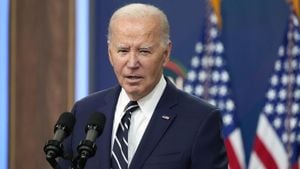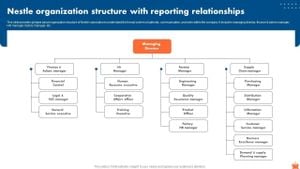Sean "Diddy" Combs, the hip-hop mogul facing serious legal troubles, is entrenched in yet another scandal—this time revolving around allegations of witness tampering and obstruction of justice from behind bars. Reports have surfaced this month detailing claims from federal prosecutors who assert Combs has been attempting to sway potential witnesses as he prepares for upcoming trials related to sex trafficking and racketeering charges.
These claims against Combs are serious enough to warrant significant media attention. While the rapper has continued to maintain his innocence, the U.S. Attorney's Office contends they have obtained evidence supporting their allegations, effectively painting him as someone circumventing justice even from his prison cell.
According to legal journalist Meghann Cuniff, court filings suggest Combs has reached out to friends and family with the intention of influencing key witnesses. Prosecutors allege he attempted to have them craft narratives aligning with his defense, manipulating narratives as he seeks to paint himself positively to the public and, potentially, any jurors who might form opinions before the trial. “Evidence suggests he hoped to have witnesses present versions of events which differed from those being presented by the prosecution,” Cuniff reported.
Phone records indicate Combs repeatedly reached out to various individuals, including former bandmates who could have key testimony. Reports suggest he utilized contacts to urge them to publicly support his claims, even allegedly offering financial incentives. For example, allegations arose indicating one witness, whose identity has been kept under seal, was contacted after Combs had not spoken to them for months, only to have this contact take place right before this witness made statements linked to his case.
What’s more unsettling is the purported use of social media as part of Combs’ purported strategy to alter the narrative surrounding his impending trial. Prosecutors claim he directed family members to produce content online, showcasing him favorably as part of efforts to influence both public perception and potential jury members. Just recently, his children posted celebrating his birthday, with claims surfacing about their involvement being more than just innocent familial love—it was all part of Combs’ calculated plan to manipulate public sentiment.
His legal team is engaging deeply with the situation, countering prosecutorial claims by arguing he has been unjustly surveilled and his rights violated. His attorneys are emphasizing the potential infringement on attorney-client privilege, claiming items seized from his cell during jail searches included privileged materials relating directly to his defense strategy.
Details provided by the prosecution claim the notes seized during those searches contained discussions about witness tampering and potentially discrediting aimed at those who might come forward against him. “The information suggests intent to obstruct justice,” they stated emphatically.
But the rebuttal from Combs’ defense is fierce. They contend the actions taken during the searches were improper, leading to material being unjustly taken from Combs’ possession. Prosecutors have defended their actions, noting they employed filters to review what was recovered from Combs’ cell, taking steps to redact privileged content before sharing details with the prosecution. But the rubbing between the two sides is getting more heated as court proceedings loom.
While the legal wrangling continues, the spotlight remains firmly on Combs, now facing increasing scrutiny for how he behaves within the confines of prison—a setting where one would hope the playing field would be level but from which, prosecutors allege, he is engaging actively to influence outcomes.
The trial, which is set for May 2025, looms large on the horizon, and with Combs’ bail denied for the fourth time, it appears his option for freedom is becoming increasingly limited as evidence mounts against him. If convicted, he is facing the possibility of spending many years behind bars, with prosecutors aiming for serious prison time, potentially as much as 15 years, for the crimes he is accused of committing.
This latest turn of events raises questions not only about Combs' personal ethics and legal strategy but about the justice system itself and its ability to function properly when faced with someone who seems to wield significant influence—a stark reminder of the age-old adage about the perceived corruption within power structures.
The complexity of the case reveals the interplay between celebrity status and the pressing consequences of legal misbehavior, leaving many wondering just how far individuals will go to protect their legacies and influence outcomes—even when they find themselves caught up in the law's iron grip.
With the prosecutorial push now firmly against the rapper, the next steps entail sharp legal maneuvers as either side readies for battle within the courtroom. Each twist and turn of the case promises to keep hip-hop audiences and the public engaged as they track both the developments of the legal proceedings and their broader ramifications.
This situation serves as both entertainment and grave warning—a demonstration of how even those perched at the top of their fields can tumble dramatically when faced with the consequences of their actions. Combs remains resolute, asserting his innocence, but as the evidence continues to stack up, public skepticism grows, leaving the outcome hanging precariously over the next few months.
Colleges, media outlets, and fans alike are awaiting the proceedings with bated breath, spotlighting the intersection of culture, justice, and celebrity, stirring conversations about the very foundations of accountability and the challenges presented when the rich and powerful meet the authority of the law.



